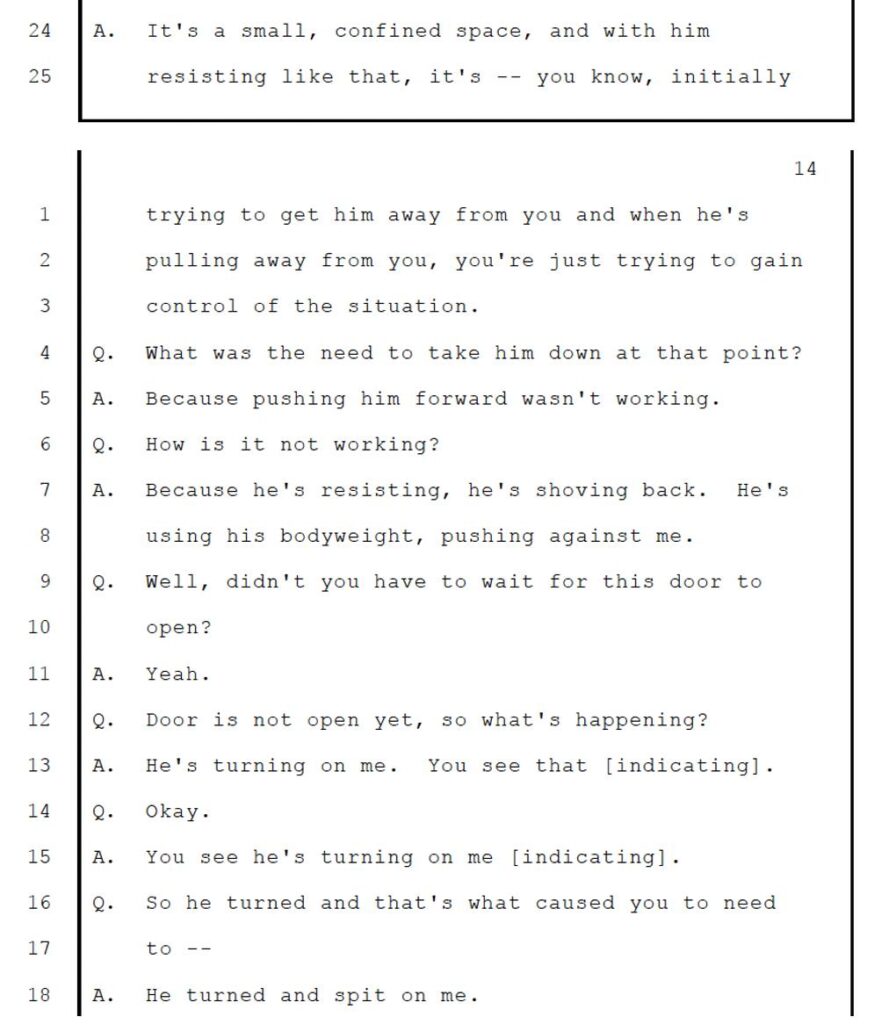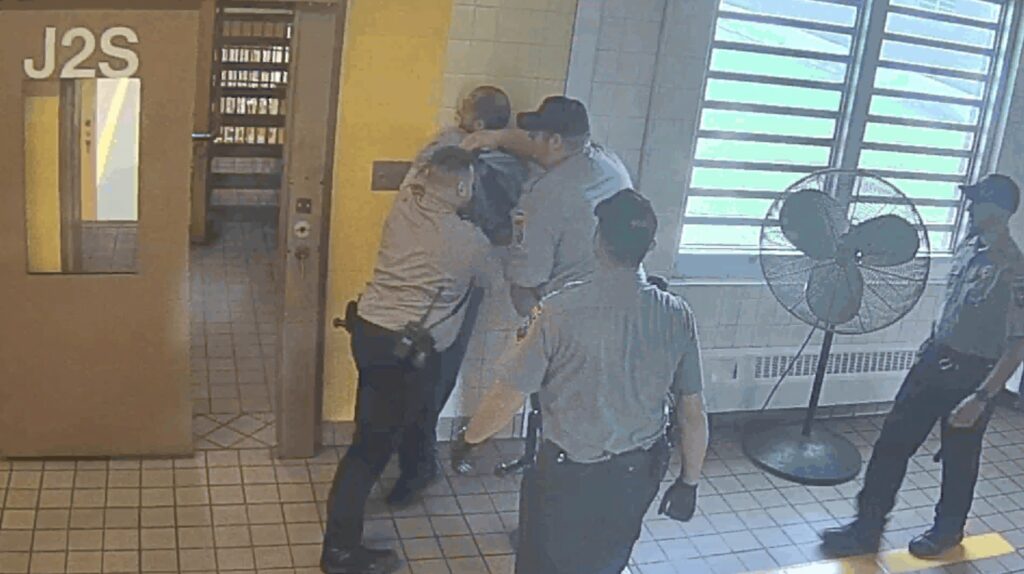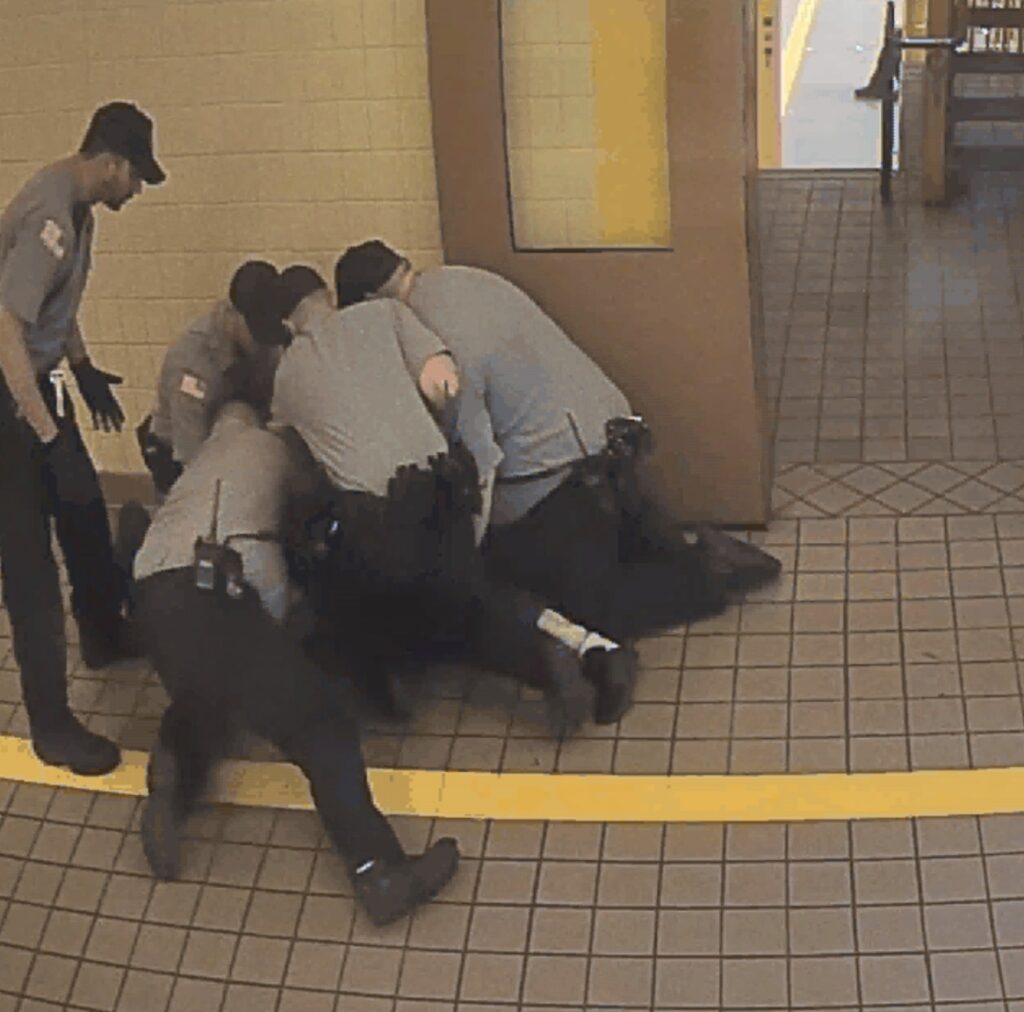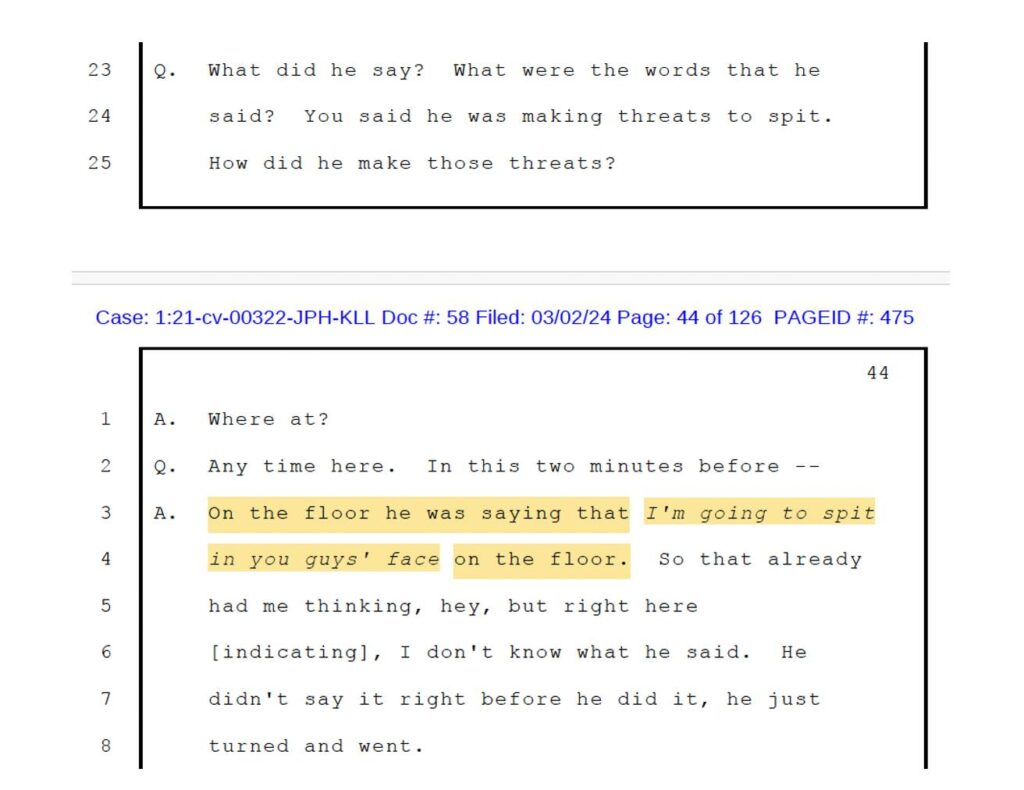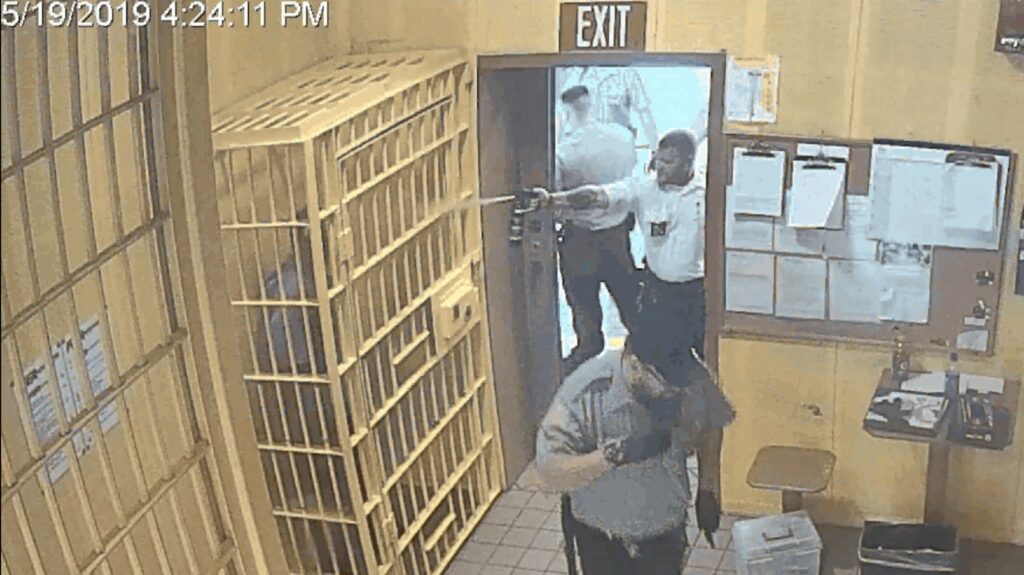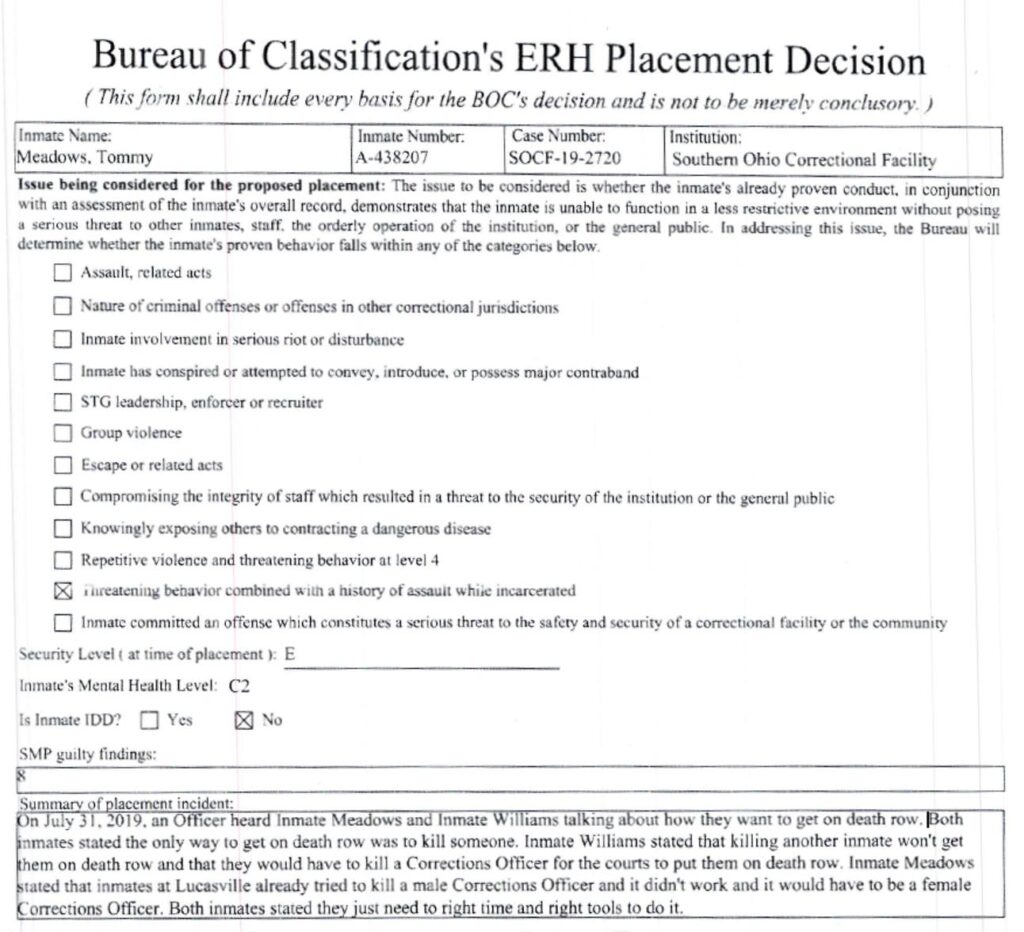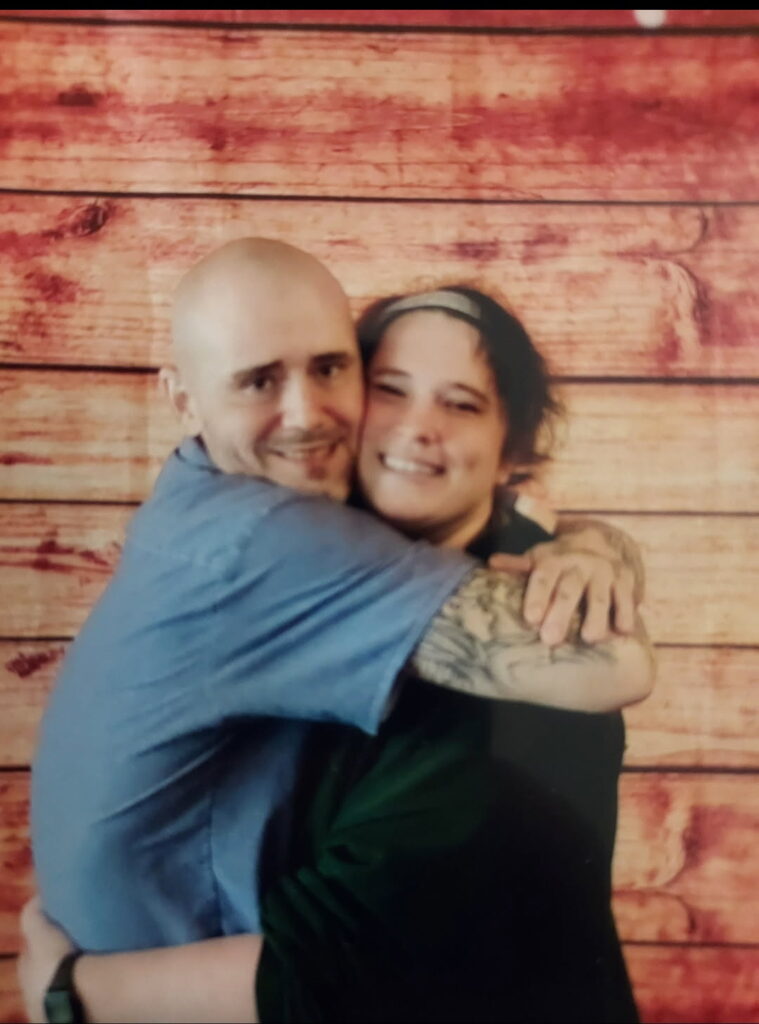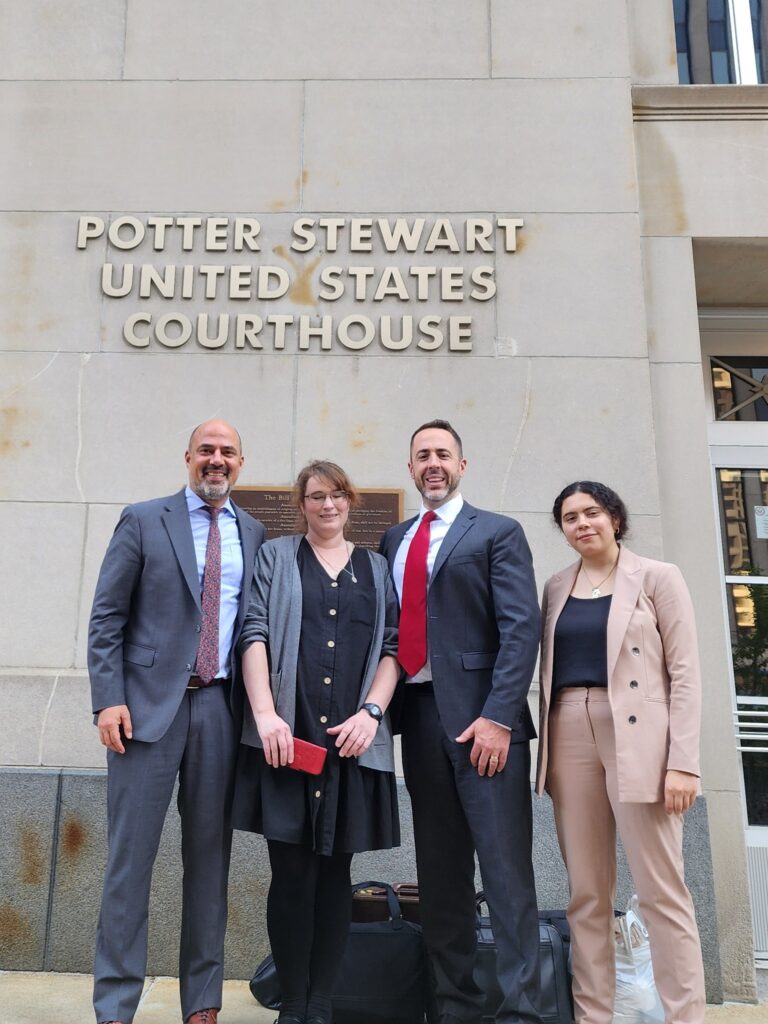Southern Ohio jury awards $404,000 in damages to Lucasville inmate on excessive force and retaliation claims in federal case against Ohio corrections officers
Last Friday, after a week-long trial in the Potter Stewart U.S. Courthouse in Cincinnati, a jury empaneled by the U.S. District Court of the Southern District of Ohio, the Honorable Jeffrey Hopkins presiding, awarded our client Tommy Meadows $404,000—$209,000 in compensatory damages plus $195,000 in punitive damages—on civil-rights claims against two corrections officers and a lieutenant at the Southern Ohio Correctional Facility in Lucasville.
The jury found that these officers violated Meadows’ Eighth Amendment right against cruel & unusual punishment and his First Amendment right to petition the government for redress of grievances:

First, by bashing his skull into a concrete wall and floor in a needless and gratuitous takedown and pile on;
 Then, by blasting him in the face with pepper spray on two separate occasions while he was locked and cuffed alone in a strip cell (note the time stamps in the upper left corner of the images below);
Then, by blasting him in the face with pepper spray on two separate occasions while he was locked and cuffed alone in a strip cell (note the time stamps in the upper left corner of the images below);
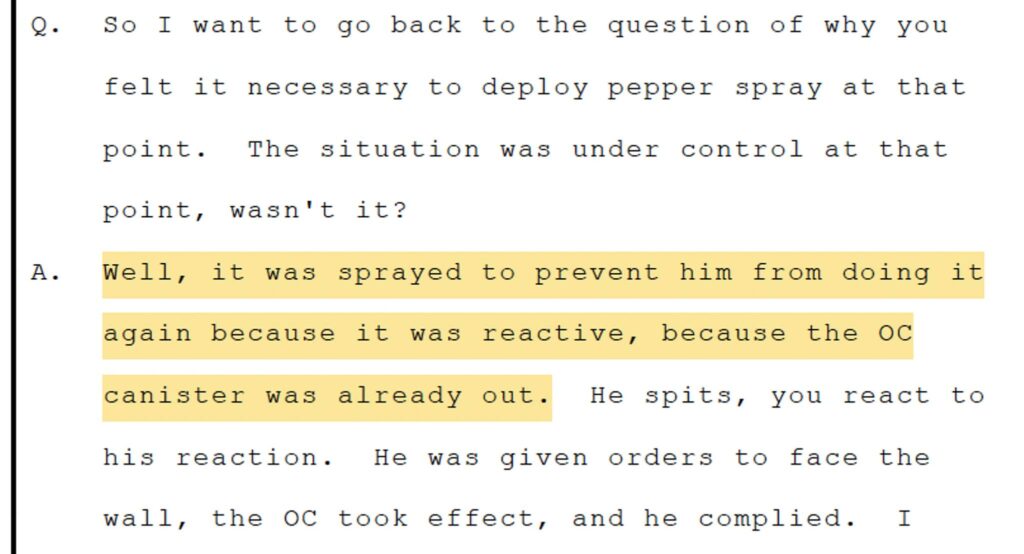
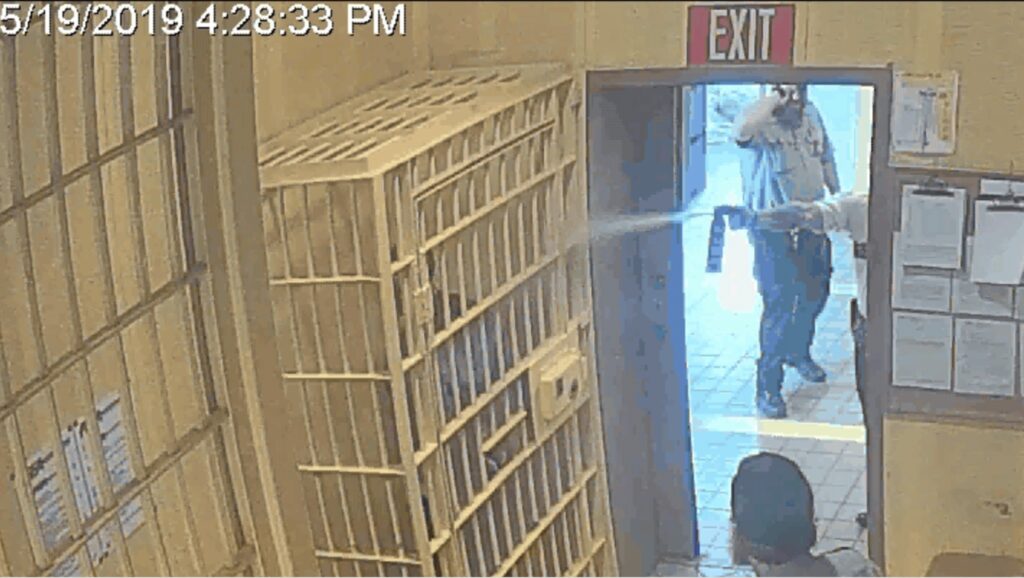
Then again—after Meadows’ then-girlfriend Madeleine Smith (now his wife, then a PhD student in Ohio State’s English Dept. and a member of the Redbird Books-to Prisoners organization, who fell in love with him while he was behind bars in what is an amazing and beautiful story in itself) proved that his grievance forms were wrongly suppressed by prison officials, and got the ODRC Chief Inspector to acknowledge and process the grievances months after they were filed—filed obviously false and retaliatory disciplinary charges against him.
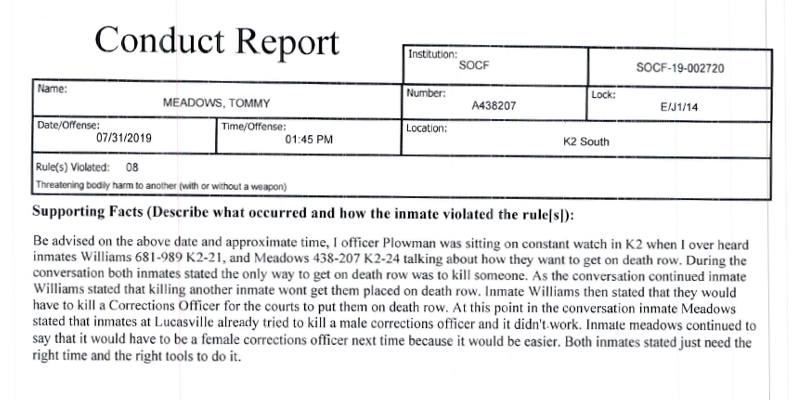
These false charges were based on the absurd claim, by one of the defendant-officers who was involved in the excessive force incident, that he happened to have overheard Meadows, while Meadows was in a restrictive housing cell, plotting with an inmate 3 cells over from him (by shouting through the bars of the front of their cells) to “land on death row” by killing a corrections officer, even though he was eligible for parole in two years and was (as love letters introduced as evidence clearly showed) falling in love with the woman who eventually became his wife. This false report, completely uncorroborated by any other evidence (the reporting officer couldn’t even remember which supervisor he claimed to have reported this “threat” to, and no surveillance footage was pulled to even show that these two inmates were even plausibly talking with one another at the time), landed Meadows in restrictive housing for an additional 2 years.
Despite the clear video evidence showing the gratuitous excessive force used by the officers, and their obvious retaliation against Meadows for trying to file a grievance against them, the most the government ever offered to settle these claims before the verdict was $5,000. The defendants, one of whom (the lieutenant) was promoted by the Ohio Department of Rehabilitation and Corrections to a “Commander” position covering the eastern half of the state after these events unfolded, all maintained on the stand that they had no regrets and wouldn’t do anything differently today. Now they are on the hook for $404,000 in damages, plus our attorneys’ fees as required by the civil rights statutes.
This trial included one of the most beautiful moments we’ve ever seen in a courtroom: Madeleine testifying about how she fell in love with Tommy; how she had heard from the other Redbird members about him before she had ever met him or read his letters; about his efforts to organize his fellow prisoners and stop the gang violence prevalent within the prison system; the care and concern he showed for his fellow inmates and their rights; and about how the jail officers all knew that Tommy was a “square peg” within the system in a good way: “someone who couldn’t have the humanity beaten out of him.”
The jurors—who came from all over the southwest corner of the state, from Cincinnati to Ironton—obviously and thankfully understood how important it was to punish and deter any such conduct in the future, and that if the least among us don’t have basic civil rights—then no one does. As attorney Peter Pattakos urged during closing arguments, DRC stands for “Department of Rehabilitation and Correction,” not “Torture and Misery.”
Our thanks as always to the jury, as well as to Judge Hopkins and his staff for ensuring a fair and efficient trial, and for the Great American Tradition of the jury trial, the most sacred of our rights as Americans and the most fundamental guarantee of same; And last but not least to our very distinguished co-counsel Emmett Robinson, who handled all of the pretrial briefing and briefing on summary judgment and was second-chair at trial.
This verdict should send a clear message that substantially improves the administration of our prison system and the protection of all Ohioans’ civil rights against abuses of state power. Once again our court system is far from perfect but when it works the way it’s supposed to it can be a very glorious thing and it certainly was last week in the Queen City.


